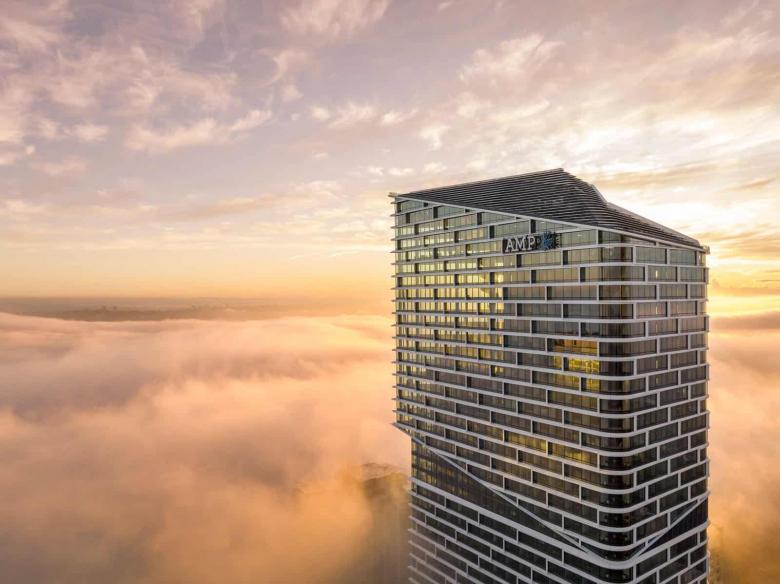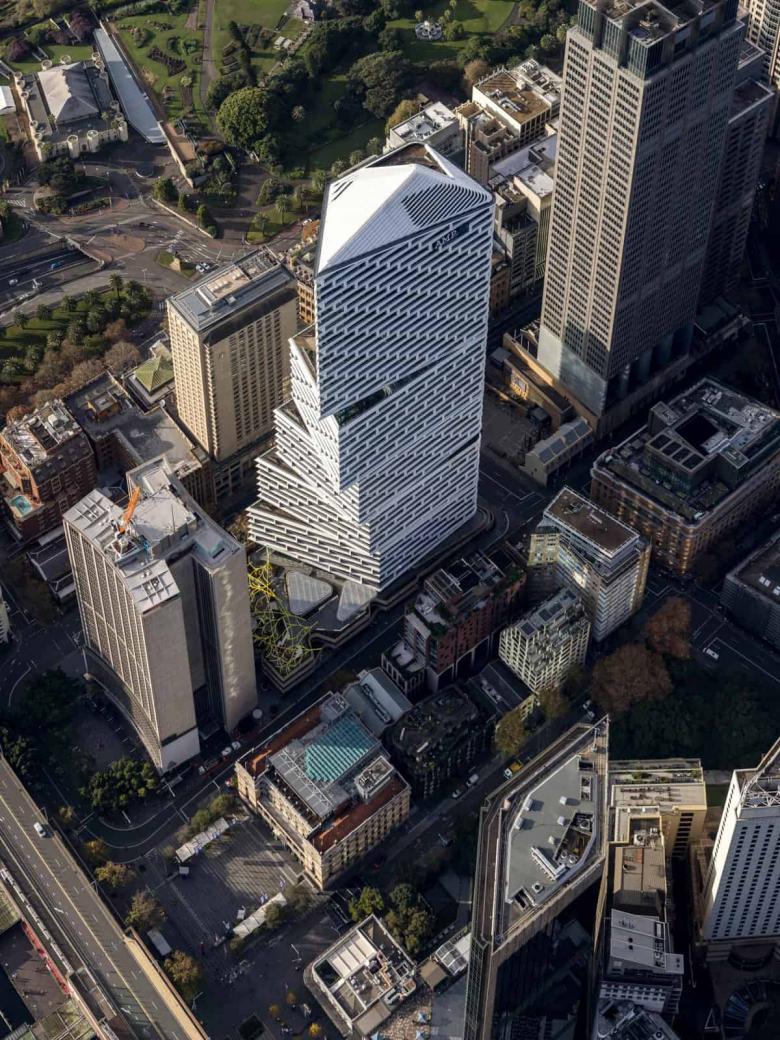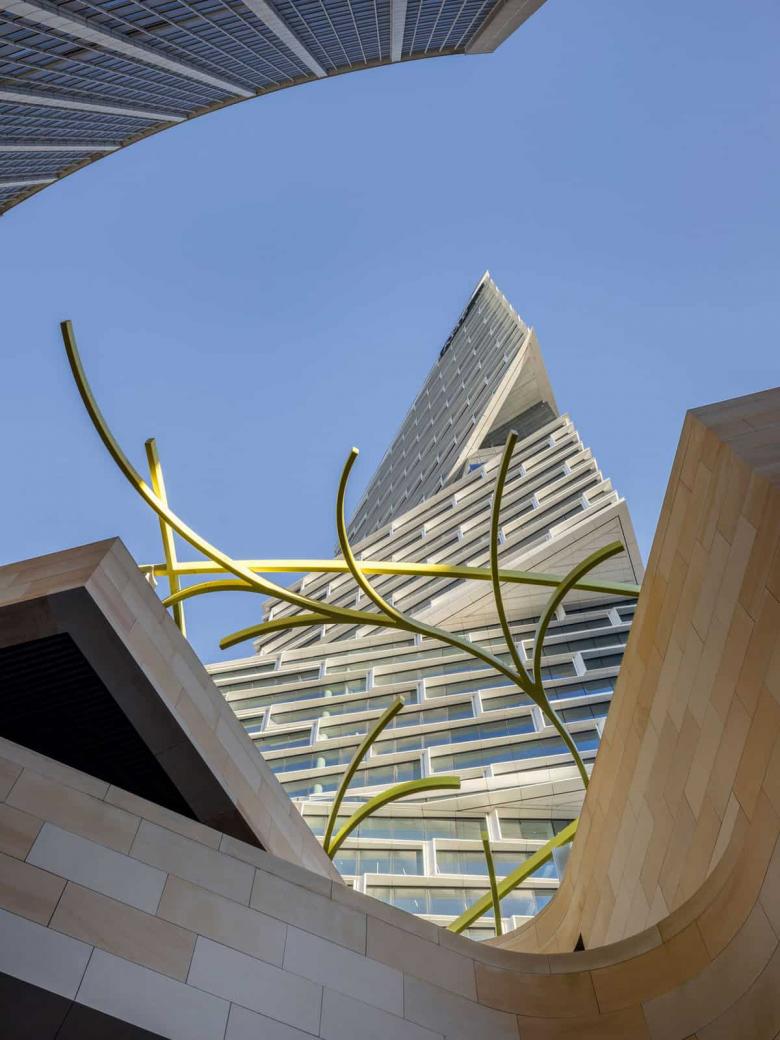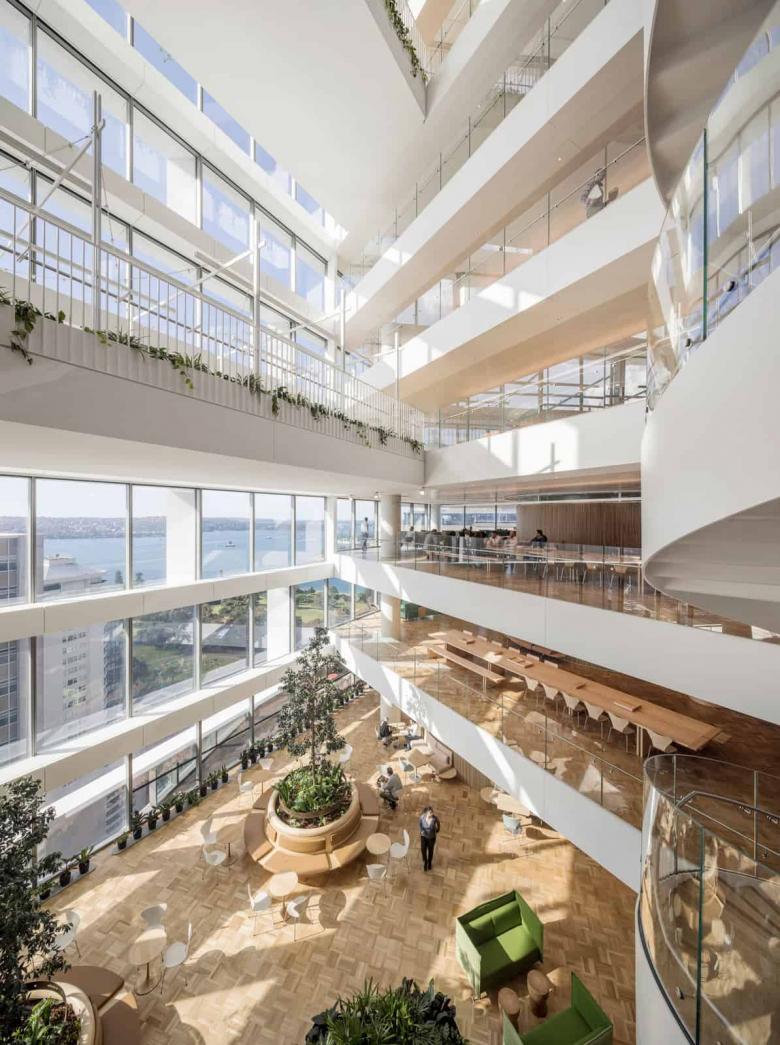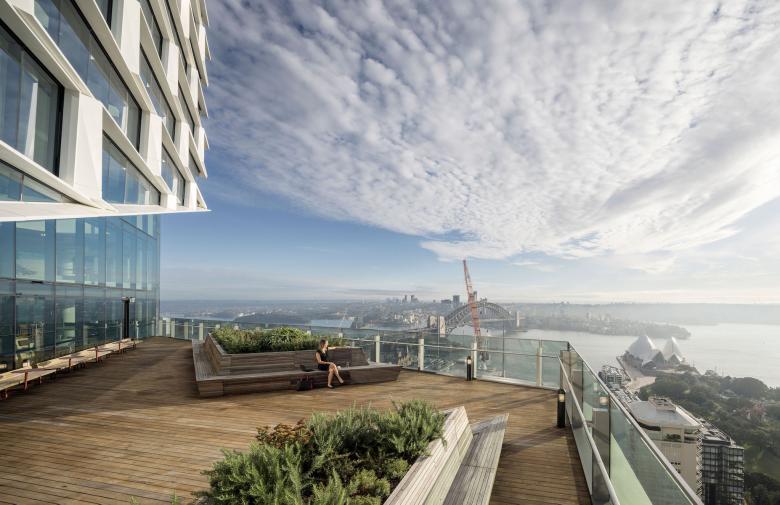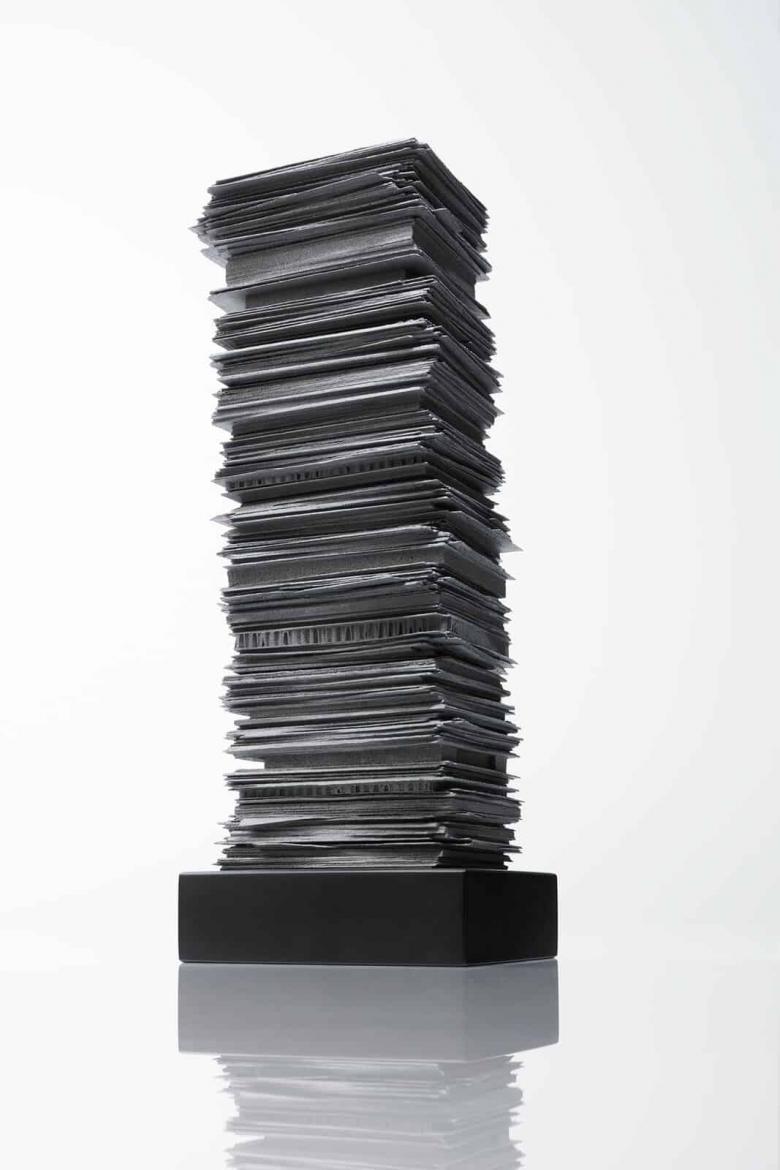Sydney Skyscraper Wins 10th International High-Rise Award
As announced by the City of Frankfurt am Main, the Deutsches Architekturmuseum (DAM), and DekaBank, 3XN's Quay Quarter Tower in Sydney, Australia, is the "world’s most innovative high-rise" for 2022/23.
Today's announcement comes six weeks after the five finalists in the running for IHA 2022/23 were unveiled. Copenhagen's 3XN beat out David Chipperfield Architects in New York, Serie Architects and Multiply Architects in Singapore, Henke Schreieck Architekten in Vienna, and BIG – Bjarke Ingels Group in Vancouver. The International High-Rise Award comes with a statuette by artist Thomas Demand — a different version for each iteration of the award (see bottom) — and prize money of EUR 50,000.
Completed in April 2022, Quay Quarter Tower is a 49-story, 206-meter office building located on the edge of Sydney's Circular Quay. While the tower is formally striking for its five stacked, angular volumes, the most remarkable aspect of the design is invisible from the exterior: the tower integrated a large portion of the structure of its predecessor, the 1970s AMP Centre tower. Instead of just reusing the foundations, as is fairly common in other situations, Quay Quarter Tower reused "two thirds of the beams, columns and floor slabs as well as almost the entire core," per a statement. This amount equates to an embodied-carbon savings of 12,000 metric tons and has led the Quay Quarter Tower to be described as "the world's largest upcycled skyscraper."
The tower's signature form of five stacked volumes was derived from the surrounding context, in an effort to address lighting conditions, views, and building code requirements. Multistory atria — called "villages" by the architects — were created where the tower appears to twist and reach toward Sydney Harbor on the north. Furthermore, the arrangement of the rotated volumes resulted in exterior terraces that are extensions of the interior atria.
"In the near future, the world will have to accommodate some three billion people under the age of 18, or the same number as the entire population of the world back in 1930. This means we need to densify. To do so, we will quite simply have to build higher. This will be the norm. Quay Quarter Tower in Sydney is four floors higher than its predecessor, adding space on the same footprint. At the same time, it maximizes carbon savings. A win-win situation."
The winner was announced on Tuesday, November 8, at a formal ceremony in Frankfurt’s Paulskirche. It will be followed by an exhibition opening at DAM (temporarily located in Museum Angewandte Kunst Frankfurt) on November 10 and an exhibition catalogue published by Jovis.
